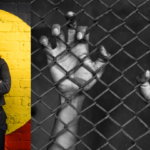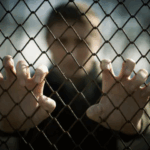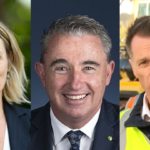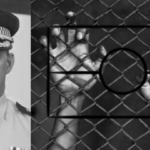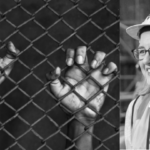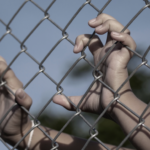Federal Government Has Power to Intervene in State Child Crime Crackdowns, Senior Counsel Advises
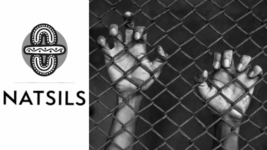
NATSILS (the National Aboriginal and Torres Strait Islander Legal Service) has demanded that PM Anthony Albanese intervene and protect children from “dangerous new laws being implemented by state and territory governments”. These laws are known to primarily target First Nations kids, who are disproportionately represented in the prison systems of all Australian jurisdictions.
The jurisdictions of New South Wales, Queensland, Victoria and the Northern Territory have all enacted laws to crack down on youth crime over the last two years. These laws have resulted in an increase in youths held on remand. The spike in the number of kids being held prior to conviction has been disproportionately impacting Aboriginal and Torres Strait Islander children.
NATSILS further announced on 16 September 2025 that it has obtained new legal advice from senior barristers, via the Justice and Equity Centre, that confirms the federal government has the power to intervene in state and territory youth law-and-order drives, via the external affairs power, under subsection 51(xxix) of the Australian Constitution.
NSW passed a law targeting repeat offending youth aged 14 to 17 in rural NSW, with 88 percent of those impacted being Aboriginal youth. Victoria passed child bail reforms that have led to a 300 percent increase in First Nations kids on remand. Queensland passed laws late last year that see kids sentenced to adult prison time, while the NT has legislatively gone to town on First Nations youth.
Independent Senator Lidia Thorpe has joined NATSILS in calling for the federal government to progress a legislative intervention in the laws of state and territory governments that have launched these severe tough-on-crime crackdowns on youth, often citing rising crimewaves as the reason for the roll out of the oppressive laws, despite this not then being reflected in the statistics.
Harming First Nations kids
“The federal government needs to address the human rights violations that our children are suffering as a result of state and territory government policies,’ said NATSILS chair Karly Warner. “This advice proves that safety, protection and justice for children is not just a matter for states and territories. This is a national crisis, and the federal government has the power to protect our children.”
“The prime minister shouldn’t need to be persuaded that 11-year-olds don’t belong in watchhouses, or that bringing back spit-hoods is an extreme retrograde step,” the palawa lawyer added.
In terms of a return to the use of spit hoods on children and locking up kids as young as 11 in adult facilities, these developments are occurring in the NT, where the Finocchiaro government has launched a wholesale law-and-order drive that has included a 57 percent rise in kids on remand. The Territory even went as far as to drop the age of criminal responsibility back down to 10 from 12.
Danggalaba Kulumbirigin Tiwi woman Mililma May from Change the Record has set out that recent history in the NT has seen a white police officer acquitted after three times shooting to kill a 19-year-old Walpiri Larita youth, while another officer who killed a Warlpiri man in a supermarket is not yet charged, and a white man who killed a First Nations man with his car did not have to go to prison.
“As community members – as Aboriginal and Torres Strait Islander people who are deeply impacted by dangerous laws that harm our communities – we believe the prime minister has a moral obligation to protect our children,” Warner underscored.
Canberra can set minimum standards
The advice sought by the Justice and Equity Centre was provided by Kate Eastman SC at New Chambers and Emma Dunlop at Omnia Chambers. The question put to them was whether the external affairs power in the Constitution taken together with article 40(3)(a) of the Convention on the Rights of the Child (CRC) permits the federal government to intervene in state and territory law.
Article 40(3)(a) of the CRC provides that state parties should establish “a minimum age below which children shall be presumed not to have the capacity to infringe the penal law”.
Further the barristers pondered whether the external affairs power and various CRC articles permit the federal government to legislate “to set minimum standards for the treatment of children and young people in state and territory criminal legal systems”, including that prison be a punishment of last resort, that kids aren’t kept in adult facilities, that kids can’t be subjected to solitary confinement and that they receive prompt legal assistance.
The barristers found that Canberra can set a minimum age of criminal responsibility for states, and they recommended the age be 14. The advice provided also confirms that the federal government could intervene in the laws of states and territories to ensure that prison is a punishment of last resort for kids, that kids can’t be held in adult prisons, they receive prompt legal assistance and that children aren’t tortured in isolation.
Albanese can intervene
“For years the federal government has denied they have any power to protect children from abuse in prison, saying it’s a matter for the states and territories. This new legal advice proves that Albanese can and must act,” said Senator Thorpe at the time that the advice was provided. “Enough excuses. We have seen children subjected to horrific abuse in the system.”
“Children dying by suicide from known hanging points, children locked in solitary confinement in police watchhouses for days with the lights left on, children with disabilities assaulted, children denied food as a form of coercion – the list of abuse goes on,” continued the Gunnai Gunditjmara and Djab Wurrung politician.
Under the year-old Crisafulli government in Queensland, children as young as 10 can now face life in prison, while the laws that the NT Country Liberal government has passed have resulted in more youth being remanded in a “youth justice” system that for years on end has had a child prisoner population that is made up of at least 90 percent First Nations children.
Much of the nation would not be unaware of this sweeping and draconian shift to heighten the nation’s long-term habit of locking up children in prisons. But, of course, the prime minister must be well aware that these draconian developments are happening under his watch and a failure to intervene, as is possible, should be taken as tacit approval.
“The Albanese government says it is committed to human rights and to Closing the Gap. But they refuse to take real action. The government has both the power and the evidence that something must be done,” Thorpe continued. “This is not about a federal power grab. This is about establishing standards and obligations that protect human lives and children’s safety.”


